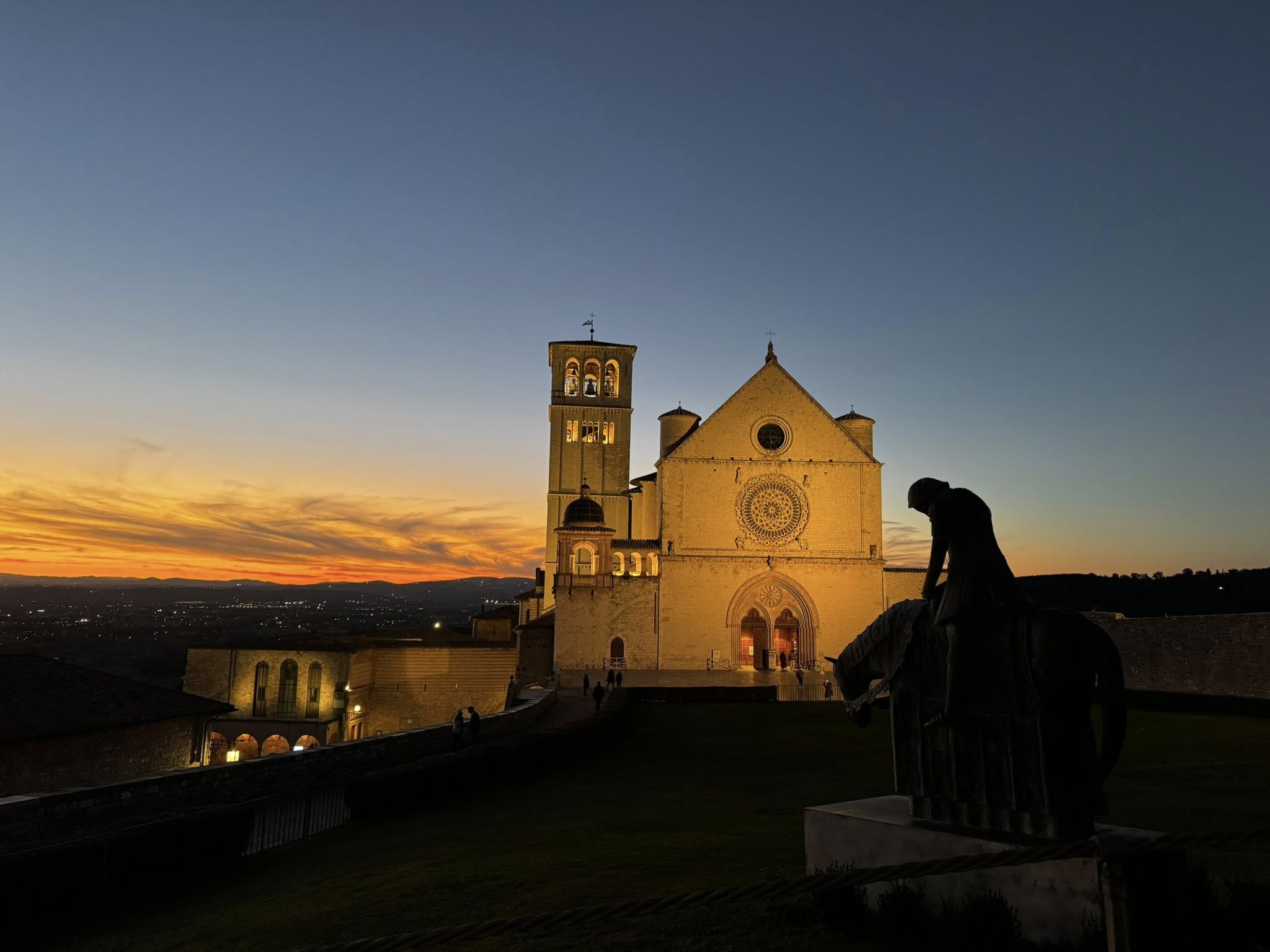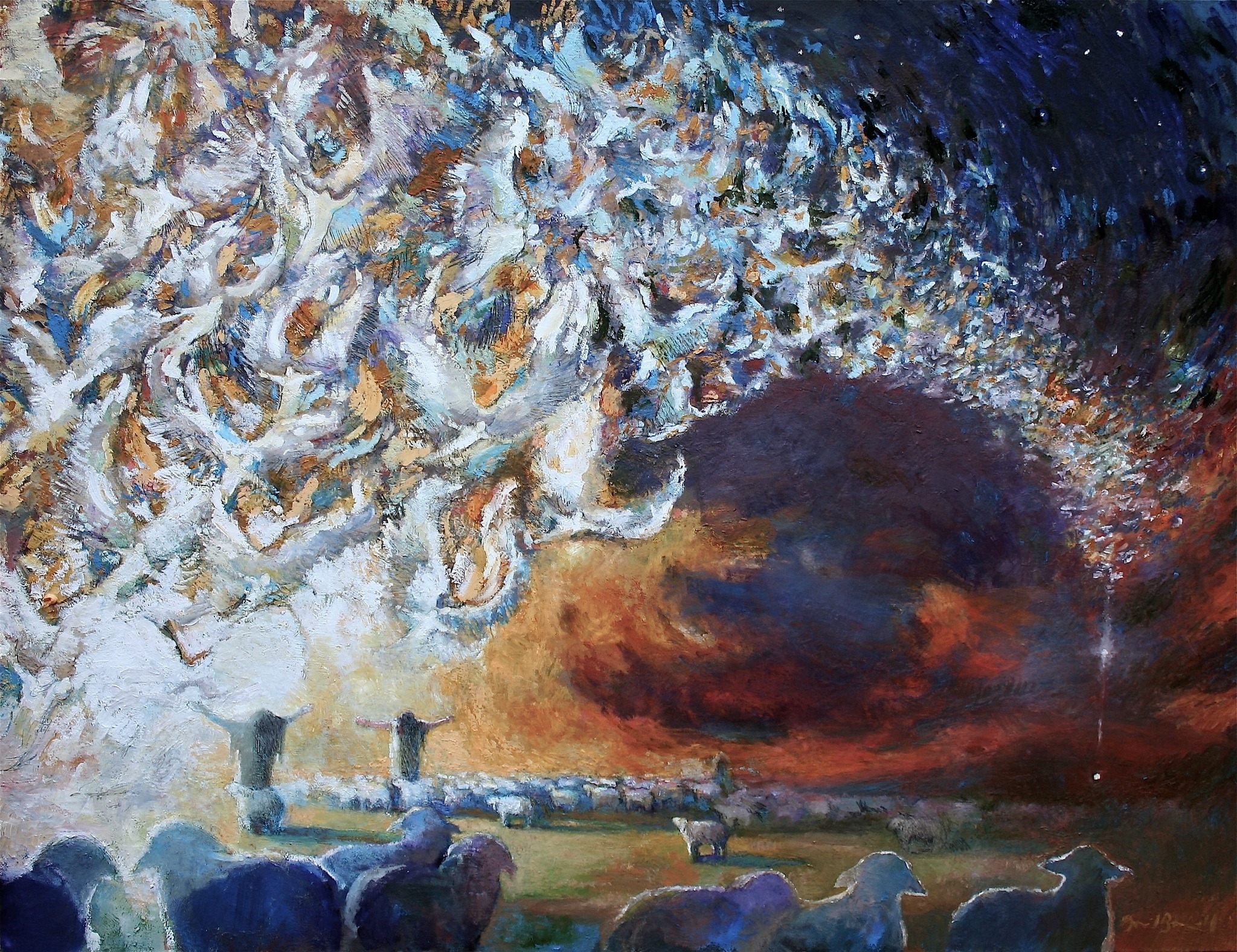Fausto Gomez, OP
The Psalmist presents himself: “I am a pilgrim on the earth” (Ps 119:19); We live “as aliens on the land” (Ps 119:19). And St. Peter: “We are strangers and pilgrims on earth” (1 Pet 2:11). In our second column, we try to answer this question: Who are hopeful?
We are pilgrims, not vagabonds who have no concrete goal. As monk Cassian said it well: “There is no arrival unless there is a definite plan to go” (Conferences). A pilgrim is not a tourist, not just a traveler, but a traveler looking for happiness. Not a bystander, but a journeyman longing for his or her promised land, for Jerusalem or the new Jerusalem, searching – consciously or unconsciously – for a supreme being: the universal quest for happiness is a mysterious search for God. St. Francis of Sales goes further and tells us that all human beings have an inclination to love God, their creator (Introduction to the Devout Life).
From cradle to tomb, every human being is a pilgrim, going somewhere. An American tourist visited the famous Polish Rabbi, Hafetz Chaim. The tourist was amazed at the austerity of the room of the Rabbi, and asked him: “Rabbi, where is your furniture?” The Rabbi answered him with a question: “Where is yours?” The American responded: “Mine? But I am only a visitor here, I am passing through?” “So am I, so am I, passing through,” the Rabbi responded (from W. Barclay). We are all visitors on earth, wayfarers, pilgrims passing through.
The pilgrim has a goal to reach, a goal that will improve his or her life. This goal or end is the first in intention and the last in execution. Every human act, or attitude, or profession has a goal to achieve. For the believers, the goal is the afterlife or heaven, and the intermediate ends are the practice of what is good, of virtues, of love. Every human being is a pilgrim, and the believer, a pilgrim of Hope.
Every pilgrim hopes a better tomorrow by reaching many destinations – proximate or remote. A Christian, member of the pilgrim Church (cf. GS 57), hopes to achieve many temporal destinations, plus one: “a new heaven and a new earth” (cf. Rev 21:1-4). For the believer, life is a journey of hope to God, who is “the ultimate goal of man” (GS 41).
On February 28, 2013, the last day of his pontificate, Benedict XVI gave a brief and emotional farewell in the evening. He said then: I will simply be “a pilgrim who is beginning the last part of his pilgrimage on earth.” Pope Francis, like St. John Paul II before him, calls himself a pilgrim in the world, and his trip to Canada (July 2022), “a penitential pilgrimage.” In reality, all true pilgrimages are pilgrimages of faith, penance and conversion, of prayerful and joyful hope.
The end of the good road looks very attractive, because it is full happiness, but it is not easy to reach it. It is often a bumpy and stony road, and at times the road’s visibility is almost zero, a truly dark night when grave sufferings, serious doubts, loneliness depress the pilgrim. Still, the virtue of the pilgrim, hope rooted in faith and practiced in love, makes the seemingly impassable patches of the road more bearable, even joyful. One remembers often St. Paul: “The sufferings of this present time are not worth comparing with the glory about to be revealed to us” (Rom 8:18). True relative and real happiness is possible “already” in this temporal life, but full happiness, “not yet”, for our homeland is in heaven (Phil 3:20).
How to be really hopeful persons? To be truly hopeful, we have to be faithful to the moment by doing what we ought to do with love: “God speaks only in the present” (Kierkegaard). Like the other virtues, hope needs the life of love to journey forward: “Only with steps of love, we march forward” (St. Augustine). Put love where there is none, and you will reap love” (St. John of the Cross).
Who are the subjects of hope then? Who hope with theological hope? Those who do not believe in God cannot hope (Eph 2:12; I Th 4:13). However, they are all invited to hope ((Eph 2:12; I Th 4:13): God wants the salvation of all (I Tim 2:4). There is no hope in hell (Mt 25:41, 46). In his Divine Comedy, Dante writes on the door of hell that those who enter through its door leave outside their hope. There is hope in purgatory (cf. Lk 16:22). There is hope in the pilgrim Church (Cf. Vatican II, LG, nos. 5, 48, 51. How about the blessed in heaven, do they have hope? Saint Paul answers: “But hope is not hope if its object is seen; how is it possible for one to hope for what he sees? (Rom 8:24).
Traditional Christian theology affirms that there is no hope in heaven; the blessed are not in the wayfaring state and the object of hope is not future anymore but already attained. Interpreting the teaching of the Church and of classical theology, Santiago Ramírez writes: “Once one arrives to the perfect vision of God face to face, the obscure and imperfect knowledge disappears (cf. Rom 8:24-25). This is the reason why Benedict XII taught that the face-to-face vision of God excludes from the blessed in heaven the acts of faith and hope as strictly theological virtues.” The saints in heaven “hope” secondary objects of hope, such as our salvation and the glorification of their bodies. This, however, is not properly speaking hope but a desire coming from charity, according to St. Augustine and St. Thomas Aquinas (S. Ramirez).
The pilgrim hopes for others, too. The human person hopes as a free and responsible being, as a member of the human community and as part of the universe: “He or she who walks alone gets lost on the way” (José Román Flecha, La Esperanza). As Christians we hope with all and for all. The immediate subject of hope in man is his will. St. Thomas places faith in the intellect (its object is truth) and hope (and charity), in the will elevated by God’s grace: the object of the will is goodness.
The pilgrim hopes not as perfect human being, but as a vulnerable, fragile, finite, needy human being. He or she hopes precisely because he/she is weak, or sick or potentially a sick person. With God’s grace and love, and, above all, with the Gift of Fear of the Holy Spirit, he will be able to journey hopefully, courageously and joyfully to heaven.
The Gift of Fear is one of the Seven Gifts of the Holy Spirit that are necessary for the perfection of the theological and cardinal virtues. The Gifts of the Holy Spirit are supernatural habits by which we are disposed to obeying promptly the movements and inspirations of the Holy Spirit. While the virtues move us somehow in a human manner, the gifts, in a divine way that depends not on us but on the Holy Spirit. The Gift of Fear perfects primarily the theological virtue of hope. It also strengthens the moral virtue of temperance and is deeply related to the virtue of humility, which is called “the guardian of hope.”
The fear in the Gift of Fear is not principally fear of divine punishment for sin (servile fear), but fear of losing or offending God our Father (filial fear). St. Teresa of Ávila, who was deeply humble, wrote that without humility everything is lost: “As long as we are in this world, there is nothing that should concern us but humility” (Interior Castle, First Mansion).
What does a Christian hope for? We shall try to answer it in our next column.


 Follow
Follow

